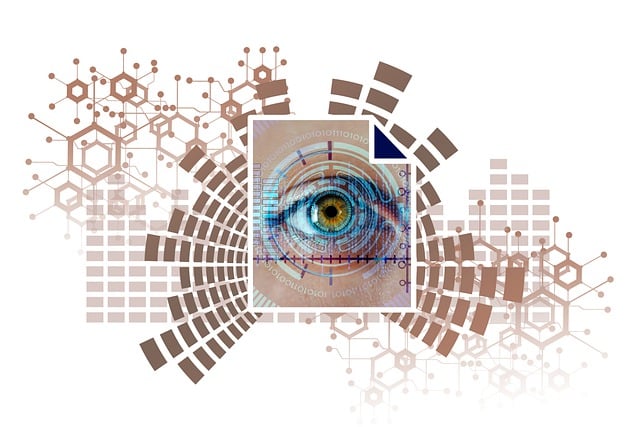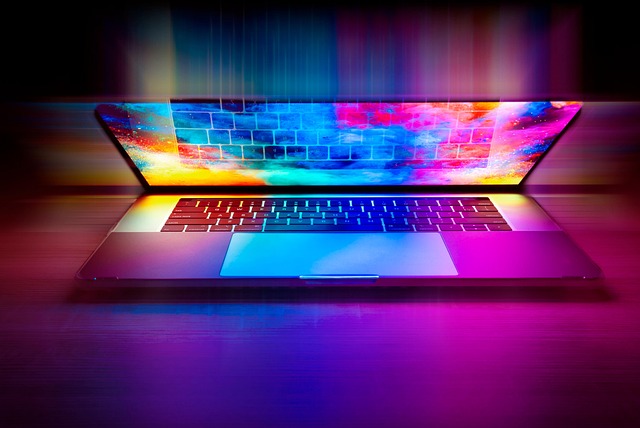Category: Background Checks for Security Personnel
Background Checks for Security Personnel: A Comprehensive Overview
Introduction
In an era where security threats are diverse and ever-evolving, ensuring the integrity and reliability of security personnel is paramount. Background checks play a pivotal role in verifying individuals’ identities, their past conduct, and potential risks they may pose to organizations and society at large. This article delves into the intricate world of background checks for security personnel, exploring its various facets, global implications, and future prospects. By the end, readers will gain a profound understanding of why this process is not just a checklist but a critical tool in safeguarding our communities.
Understanding Background Checks for Security Personnel
Definition and Core Components
Background checks for security personnel are a systematic evaluation of an individual’s history, including their criminal record, education, employment history, and personal references. This process aims to identify any red flags or discrepancies that might hinder their suitability for security roles. Key components typically include:
- Criminal History Verification: Reviewing local, state, and national databases to uncover any felony convictions, misdemeanors, or outstanding warrants.
- Education and Credential Validation: Confirming the legitimacy of educational qualifications, professional certifications, and licenses relevant to the security role.
- Employment Screening: Traacing previous employment history, verifying employers, and assessing job roles for potential security risks.
- Reference Checks: Contacting personal or professional references provided by the candidate to gain insights into their character and reliability.
- Behavioral Assessments: Using psychometric tools to evaluate traits like honesty, integrity, and stress management, which are critical in high-pressure security roles.
Historical Context and Significance
The concept of background checks has evolved over time, driven by the increasing complexity of global security threats. Historically, these checks were primarily focused on criminal records for law enforcement agencies. However, with the rise of private security firms and the need to protect sensitive facilities, the scope expanded. Today, background checks are a standard practice in industries like banking, healthcare, transportation, and government, ensuring that personnel who handle sensitive information or critical infrastructure meet stringent standards.
Its significance lies in its ability to:
- Mitigate Security Risks: Identify individuals with potential ties to criminal activities, terrorism, or other security threats.
- Enhance Safety: Protect organizations and their assets by ensuring staff members are trustworthy and reliable.
- Comply with Regulations: Meet legal obligations regarding data privacy, employment equity, and industry-specific standards.
- Improve Employee Morale: Foster a culture of integrity and accountability, boosting employee satisfaction and retention.
Global Impact and Trends
International Influence
Background checks for security personnel are a global phenomenon, yet their implementation varies widely across regions. Western countries, such as the United States, Canada, and members of the European Union, have well-established frameworks with strict regulations. These nations often require comprehensive background screenings for all security roles, including private contractors working in sensitive sectors.
In contrast, developing nations may have less stringent requirements due to resource constraints or different legal systems. However, as these countries grow economically and attract foreign investments, there is an increasing trend towards adopting more robust security measures, including background checks.
Regional Trends
- North America: Known for its stringent privacy laws (e.g., the U.S. Fair Credit Reporting Act), this region has a detailed framework for background checks, especially in high-security sectors like banking and government.
- Europe: The EU’s General Data Protection Regulation (GDPR) sets a global standard for data privacy, influencing how member states conduct background checks while ensuring individual rights.
- Asia Pacific: Countries like Singapore and Japan have robust security measures, with background checks being mandatory for certain roles due to high-tech crime and sensitive information handling.
- Middle East and Africa: Some countries in these regions are adopting more sophisticated screening processes as they invest heavily in infrastructure development and technology, particularly in the oil and gas sector.
Economic Considerations
Market Dynamics
The global security services market is a multi-billion-dollar industry, projected to grow significantly over the next decade. Background checks are an integral part of this market, with organizations investing in these processes to:
| Region | Market Size (2023) | Projected Growth (2023-2028) |
|---|---|---|
| North America | $150.4 billion | 6.2% CAGR |
| Europe | $137.3 billion | 5.5% CAGR |
| Asia Pacific | $192.5 billion | 7.8% CAGR |
| Middle East & Africa | $35.2 billion | 6.5% CAGR |
Investment Patterns
Investments in background check systems and services are on the rise, driven by:
- Digital Transformation: The adoption of digital platforms for conducting checks enhances efficiency and data security.
- Risk Mitigation: Organizations view background checks as a proactive measure to reduce operational risks and potential legal liabilities.
- Compliance: Meeting regulatory requirements is a significant driver, especially in industries with stringent data privacy laws.
Economic System Impact
Rigorous background checks can influence economic systems by:
- Facilitating Trade: Ensuring security in supply chains and international trade, boosting cross-border business opportunities.
- Attracting Investment: Countries with robust security measures become more attractive to foreign investors, fostering economic growth.
- Job Creation: The security industry itself is a significant employer, contributing to local economies.
Technological Advancements
Digital Platforms and Tools
Technology has revolutionized background checks, making the process faster, more efficient, and accessible:
- Online Screening Databases: Comprehensive online databases allow for simultaneous checks across multiple sources, reducing processing time.
- Digital Identity Verification: Biometric and document verification technologies ensure the authenticity of identification documents.
- AI and Machine Learning: These tools analyze vast data sets to identify patterns and potential risks more accurately, enhancing decision-making.
- Mobile Applications: Mobile apps provide secure access to check records, enabling remote and on-the-go verifications.
Impact and Future Potential
Technological advancements have:
- Increased Efficiency: Streamlined the process, allowing for faster turnaround times without compromising accuracy.
- Enhanced Accuracy: Improved the reliability of information by cross-referencing multiple data sources.
- Data Security: Implemented robust security measures to protect sensitive personal data.
In the future, AI and machine learning are expected to play a more prominent role in:
- Predictive Analysis: Forecasting potential risks based on historical data and behavioral patterns.
- Automated Decision Making: Reducing human bias in screening processes.
- Personalized Screening: Tailoring checks to individual roles and organizations’ specific needs.
Policy and Regulation
Global and Regional Frameworks
The regulatory landscape for background checks is diverse but interconnected:
- International Organizations: The International Labour Organization (ILO) provides guidelines for employment-related background checks, emphasizing fairness and non-discrimination.
- United Nations: Various UN resolutions address security-related due diligence, influencing national policies.
- Regional Bodies: The EU’s GDPR sets a precedent for data privacy across member states, while the U.S. Equal Employment Opportunity Commission (EEOC) enforces anti-discrimination laws.
Key Policies and Their Influence
| Policy/Regulation | Region | Impact |
|---|---|---|
| Fair Credit Reporting Act (FCRA) | USA | Ensures consumer rights, limits use of certain data, and promotes fairness in reporting. |
| General Data Protection Regulation (GDPR) | EU | Provides stringent data privacy rules, impacting how background checks are conducted. |
| Anti-Discrimination Laws | Diverse | Restricts the use of criminal history and other factors to prevent unfair treatment during hiring. |
| Security Clearance Standards | Various Countries | Sets requirements for access to sensitive information, influencing background check rigor. |
These policies shape:
- Data Privacy: Limiting the types of data that can be used in checks and how it is stored and shared.
- Fair Employment Practices: Ensuring equal opportunities and preventing discrimination based on certain factors.
- Security Standards: Defining the level of scrutiny required for different security roles and access levels.
Challenges and Criticisms
Main Issues
Despite their benefits, background checks face several challenges:
- Data Inaccuracy: Outdated or incorrect information in databases can lead to false positives or negatives, affecting hiring decisions.
- Privacy Concerns: Balancing the need for thorough checks with individual privacy rights is a constant challenge.
- Bias and Discrimination: Unconscious biases in algorithms or human decision-making may result in unfair treatment of certain demographics.
- Cost and Time: Conducting comprehensive checks can be resource-intensive, especially for small businesses.
Proposed Solutions
Addressing these challenges requires a multi-faceted approach:
- Data Validation and Verification: Regularly update databases, implement cross-checking mechanisms, and use official sources to ensure data integrity.
- Enhanced Privacy Measures: Implement strict data protection protocols and anonymize data where possible to safeguard individuals’ privacy.
- Algorithmic Transparency and Auditing: Make algorithms used in checks transparent and subject to regular audits to identify and mitigate biases.
- Cost-Effective Solutions: Develop digital platforms that aggregate data from multiple sources, reducing the need for extensive manual checks.
Case Studies: Successful Applications
Example 1: Enhancing Airport Security in the U.S.
The Transportation Security Administration (TSA) in the United States uses advanced background check systems to screen airport security officers. This includes biometric identification, detailed criminal history checks, and psychological assessments. As a result, the TSA has reported a significant reduction in security-related incidents and an increase in public confidence.
Example 2: Private Security in South Africa
In South Africa, private security firms employ extensive background checks for their guards, incorporating biometric data and comprehensive reference checks. This has led to improved security standards across industries, particularly in high-risk areas like mining and banking.
Example 3: Healthcare Sector in the UK
The National Health Service (NHS) in the UK conducts rigorous background checks for all staff members, especially those with patient-facing roles. This process includes enhanced disclosure checks due to concerns about patient safety and data privacy. The NHS’s approach has contributed to a culture of transparency and trust within the healthcare system.
Future Prospects
Growth Areas
The future of background checks for security personnel is promising, with several growth areas:
- Biometric Technology: Advancements in biometric systems will enhance accuracy and security, making checks more efficient and reliable.
- AI-Driven Analysis: Artificial intelligence will play a more central role in analyzing vast datasets to predict risks and personalize screening processes.
- Global Standardization: Efforts to create universal standards for data privacy and security will make international collaboration on background checks more feasible.
- Remote Checks: The demand for remote verifications will increase, especially post-pandemic, as organizations embrace hybrid work models.
Emerging Trends
- Real-Time Verification: Instant checks using real-time databases to verify identity and credentials at the point of hiring or deployment.
- Psychometric Integration: Incorporating advanced psychological assessments to gain deeper insights into an individual’s personality, stress management, and suitability for specific roles.
- Blockchain for Data Security: Utilizing blockchain technology to secure data, ensuring its integrity and immutability throughout the checking process.
Strategic Considerations
- Continuous Improvement: Organizations should adopt a culture of continuous improvement, regularly reviewing and updating their background check processes to keep up with technological advancements and changing security landscapes.
- Global Collaboration: Standardization and collaboration on international levels can lead to more efficient and effective screening practices.
- Focus on Data Privacy: As data privacy regulations evolve, security personnel must remain compliant while ensuring individual rights are respected.
Conclusion
Background checks for security personnel are a critical component of modern security protocols, playing a pivotal role in safeguarding individuals, organizations, and societies. This article has explored its various facets, from historical context to technological advancements, policy frameworks, and real-world applications. The challenges faced can be overcome through strategic solutions, ensuring the process remains effective while respecting individual rights.
As we look ahead, the future of background checks is promising, with technology driving efficiency, accuracy, and globalization fostering collaboration. By embracing these developments and staying vigilant, security professionals can contribute to a safer and more secure world.
FAQ Section
Q: Are background checks a violation of privacy?
A: While background checks may involve accessing sensitive personal data, they are conducted with legal oversight and respect for individual privacy rights. Organizations must follow strict guidelines, ensuring the collection and use of data is proportional to the risks involved.
Q: How does technology improve the accuracy of background checks?
A: Technology enhances accuracy through data aggregation from multiple sources, advanced algorithms that analyze patterns, and biometric verification methods, reducing the risk of human error and bias.
Q: Can background checks help prevent discrimination?
A: Yes, they can. Stringent policies and regulations prohibit discriminatory practices in hiring based on certain factors like criminal history or ethnicity. Fair and unbiased background checks ensure equal opportunities for all candidates.
Q: What are the common types of checks included in a security personnel screening?
A: Common checks include criminal history verification, educational and professional credential validation, employment history tracing, reference checks, and behavioral assessments to evaluate traits like honesty and stress management.
Q: How can organizations ensure their background check processes remain compliant with evolving laws?
A: Organizations should stay informed about legal developments, implement robust internal policies, and seek expert advice when necessary. Regular audits and reviews of the process can also help maintain compliance.
Background Checks Prevent Unqualified Security Workers from Entering

Background checks for security personnel (security guard background screening) are vital to ensure q…….
Background Checks: Ensuring Security Guard Safety and Trust

Background checks for security personnel are essential to vet trustworthy guards who protect people…….
Background Checks: Security Personnel Trust Builders

Background checks for security personnel, particularly guards, are vital to ensuring trust and safet…….
Background Checks: Safeguarding Communities with Secure Screening

Background checks for security personnel (security guard background screening) are crucial for publi…….
Background Checks: Protecting Security Sector Integrity with Premises Protection

Background verification, especially comprehensive premises protection checks, is vital for security…….
Strengthen Safety: Verify Personnel for Qualified Hiring

Background checks are vital for safety personnel verification, screening applicants beyond resumes t…….
Background Checks: Safeguarding Security Industry Trust

Rigorous background checks for security personnel are vital to ensure safety and build trust in the…….


